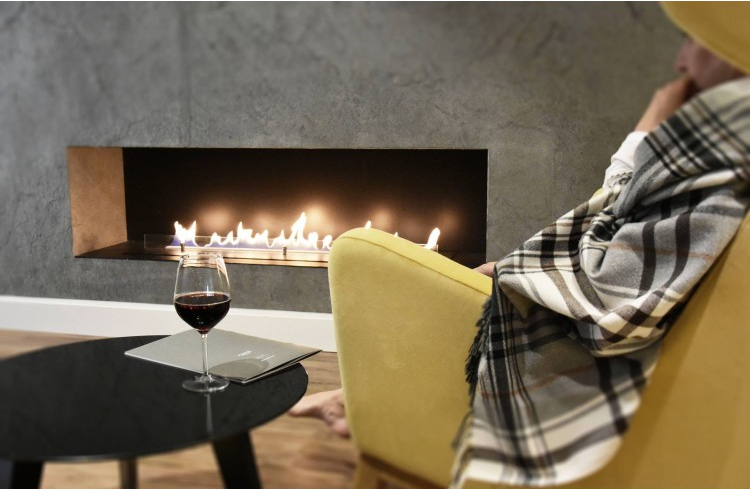Winter is here, and there’s nothing better than coming home to a warm, cosy fireplace. Christmas would be incomplete without a Yule log burning at home or the local pub. A bio-ethanol fireplace could be just what you need.
Some fireplaces, especially solid-fuel burning stoves, can be bad for the environment. And because of this, some fuels are banned in certain areas.
If you burn wet wood or dirty coal in your fireplace, it produces high levels of dirty smoke and pollution. And while gas fireplaces are slightly more environmentally friendly than solid-fuel stoves, they still rely heavily on non-renewable fossil fuel to generate heat.
Luckily, there’s an alternative option. A bio-ethanol fireplace won’t have the same detrimental effect on the environment. But it will still give you that cosy winter feeling.
What is a bioethanol fireplace?
Bio-fireplaces (otherwise known as ethanol fireplaces) use bio-ethanol as a source of fuel. Bio-ethanol produces water vapour and carbon dioxide as it burns. This means you won’t need a chimney, since there will be no soot, smoke or ashes.
Bio-ethanol is a type of alcohol that’s distilled from renewable greenery. This includes plants such as sugarcane, corn, potatoes, and rice. Bio-ethanol is created through a process of fermentation, much like the one that makes beer or wine. The alcohol produced from the process is too poisonous to drink. But is super-dense with energy and it makes an efficient fuel for heating the home.
How does it work?
There are two types of bio-ethanol fireplaces:
Automatic fireplaces: In automatic fireplaces, the flames have no contact with the fuel. The fuel sits in a reserve. When heated, the alcohol evaporates into the burner where a spark system ignites it. Having a separate fuel tank means the fireplace can store fuel. That makes it super-efficient since it can burn for a long time before needing refueling.
Manual fireplaces: Manual fireplaces require you to pour bioethanol into the burner and light it with a regular stove lighter or matches. The mechanism is simpler, cheaper, and less likely to require maintenance than the automatic option. But manual ethanol burning fireplaces do require more frequent refueling.
Cost
How much a bio-ethanol fireplace costs to run depends on how much fuel you use. A good rule of thumb is to assume a 1L bottle of fuel would last from four hours on maximum setting to eight hours on minimum setting. In the UK, specialist fuel seller EkoFuel delivers bio-ethanol for free.
Bioethanol fireplaces are generally cheaper to run than gas and wood-burners. A 20L volume fireplace costs approximately £0.48 per hour on a medium setting.
OPOH recommends
Bioethanolfires is one of the leading bio-ethanol fireplace retailers in the UK. They have a showroom in Altrincham, Cheshire. They work with manufacturers and interior designers to provide a range of manual and automatic burners for indoor and outdoor use. And they also offer built-in and freestanding fireplaces.
A popular product is the PureFlame Insert by Planika. Designed to be built into a piece of furniture, it features ceramic logs, miniature ‘coals’, and realistic ’embers’.

